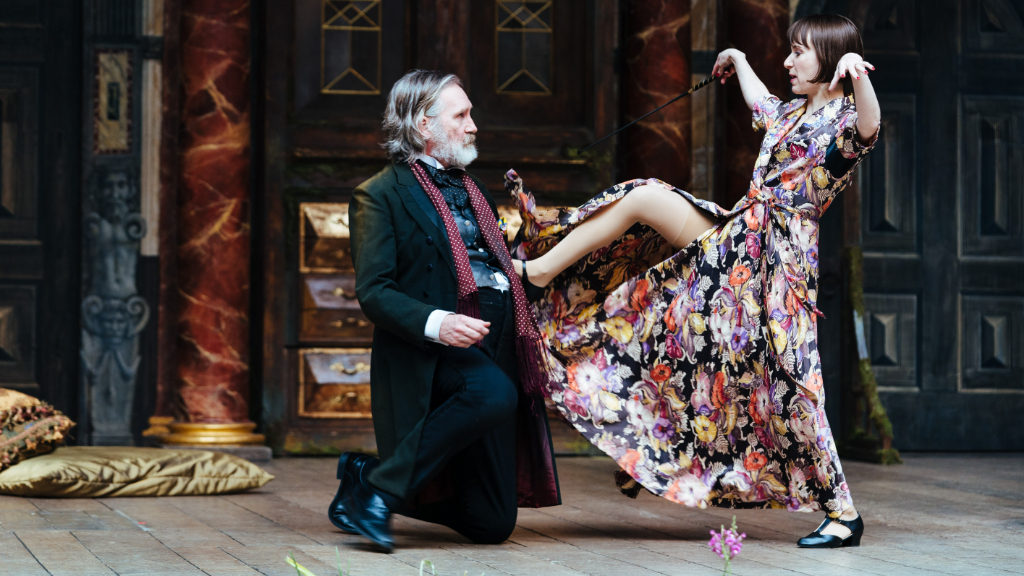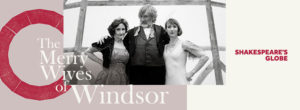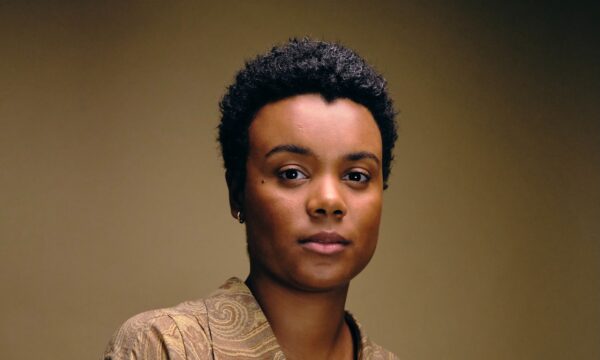The Merry Wives of Windsor at Shakespeare’s Globe

“I will find you twenty lascivious turtles ere one chaste man.” So says Mistress Ford, the target of Sir John Falstaff’s unwanted affections in the Globe’s new production, The Merry Wives of Windsor, a play that’s as uproarious as it is frivolous. But frivolity never prevented anything from being worthwhile, so let’s dive in.
Pearce Quigley plays a compelling Falstaff, a fat knight who arrives in Windsor short on cash. Quigley’s delivery is impeccable: he shines and carries tonight’s performance along with lustful swagger. To acquire wealth, Falstaff decides to woo one of the rich wives of Windsor, Mistress Page (Sarah Finigan) and Mistress Ford (Bryony Hannah). But which one? Falstaff writes almost identical letters to both, inviting them to frolic; but when the knight’s ignoble ways turn his servants against him, the wives learn of his underhanded plot. Together, they unite to play a joke at his expense – unbeknownst to jealous Master Ford (Jude Owusu), who distrusts his wife. Meanwhile, Mistress Page’s daughter Anne is hounded by suitors. Her mother wants her to marry Caius, a French physician (Richard Katz); her father’s pick is the oafish, unromantic Slender; and Anne herself is in love with Fenton. This is a lot to untangle, but over the course of two and a half hours the characters and their accompanying motivations emerge with natural vivacity.
Director Elle While’s production is set in the 1930s. It’s a romping Jazz Age adaptation to which composer Frank Moon’s score does justice, blending in lyrics from early modern ballads with live music by a five-piece band. Choreography by Sasha Milavic Davies bustles with joy – and the actors’ jiving further energises a largely standing crowd, which shifts balance from foot to foot, dancing unconsciously along. The Globe’s stage here extends into the yard, allowing the actors to interact in new ways with spectators. This also ensures tomorrow’s performance will be different from tonight’s, and overmorrow’s.
The Globe’s reason for setting Merry Wives in the 1930s is surely that the play is 400 years old, largely deemed one of the Bard’s weakest works – it relies mainly on irony, sexual innuendo, sarcasm and stereotypical views of class and nationalities – and in need of new vitality. The director’s suggestion that the play’s forest-set resolution alludes to a moral comment on our relationship with nature is tenuous. And to dress this play up ex post facto as an earnest exploration of class themes is unfashionably insincere – clashing metaphorically with Charlie Cridlan’s costume design. But While also notes that the 1930s closely resembled today in that, in both troubled times, we’ve sought increasing opportunities to delight in humanity. Merry Wives is cleverly rewritten for today’s audience and prompts bursting laughter. It is undeniably a labour well bestowed.
Daniel McLeod
Photos: Helen Murray
The Merry Wives of Windsor is at Shakespeare’s Globe from 17th May until 12th October 2019. For further information or to book visit the theatre’s website here.

























Facebook
Twitter
Instagram
YouTube
RSS